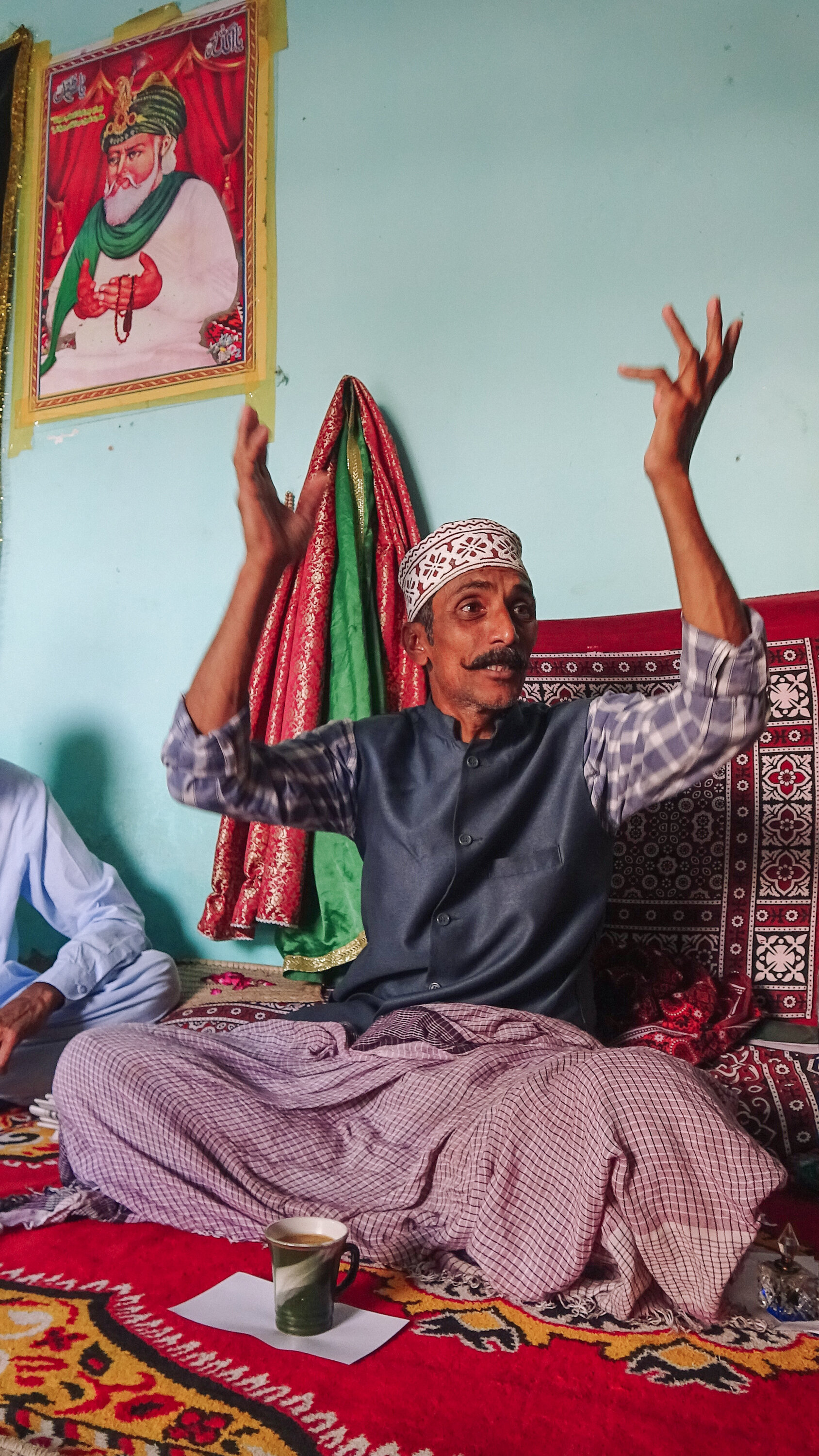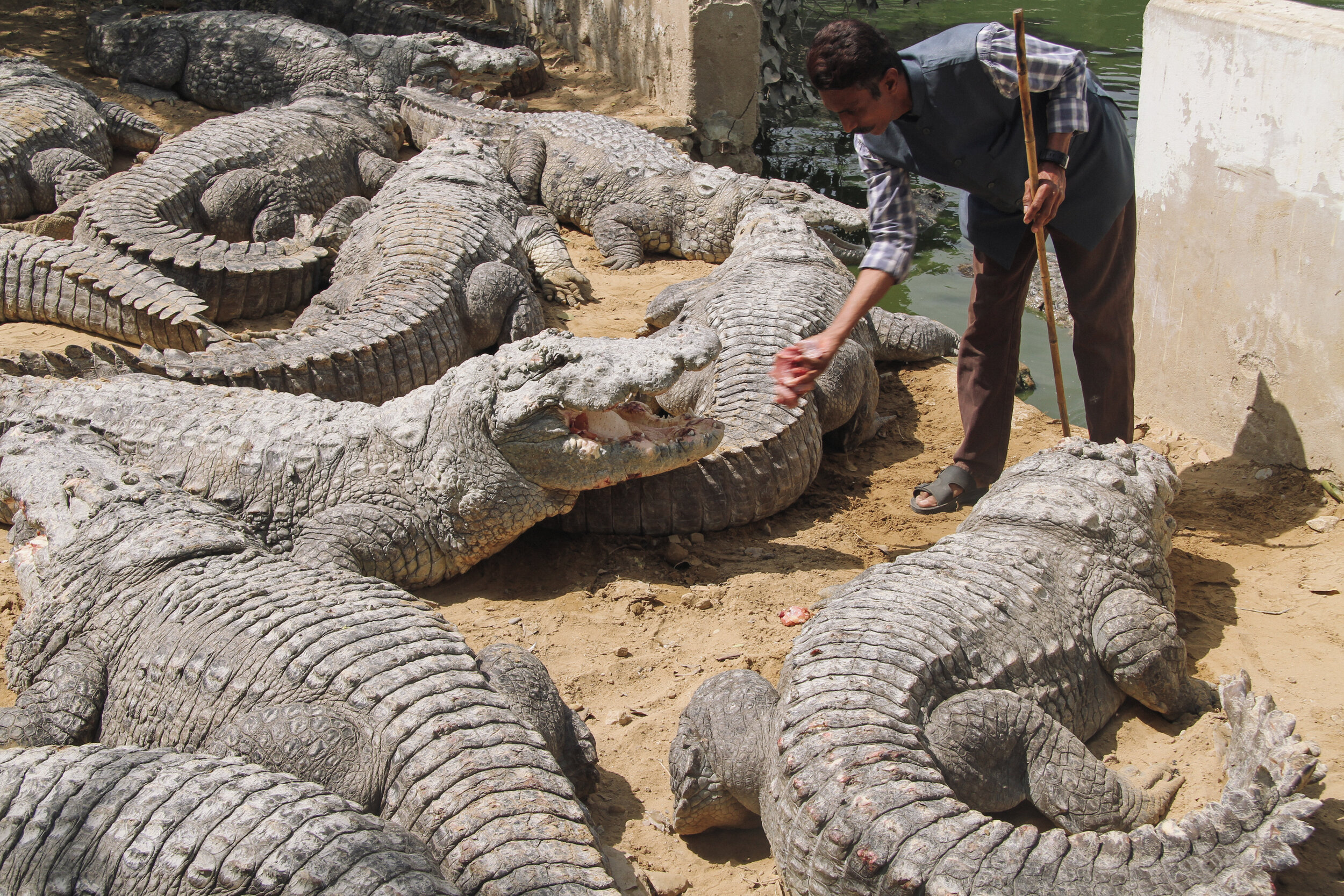Animal Cults, Ecology, and Sufism
Environment and Ecology in Sufism
Huge black soft-shell turtles and gozar fish at Bayazid Bistami Shrine in Chittagong, southeastern Bangladesh
An old Bengali Muslim practice of venerating critically-endangered animal species can be observed at the Bayazid Bistami Shrine (mazar) at Nasirabad in Chittagong, Bangladesh, more popularly referred to as the Turtle Shrine. By offering a safe habitat and breeding grounds for the huge enigmatic black soft-shell turtles called Bistami Kasim (Aspideretes nigricans), locally known as Mazaris, and the large number of Gozaris (‘gozar’ fish), as the fish that populate the pond are referred to (and on whose back Bistami is traditionally believed to have ridden to Bengal), the Sufi shrine functions as pivotal refuge for a wide section of these riverine populations. However, the ancient practice of protecting ‘sacred animals’ at this Muslim ‘natural’ sacred site is not generally accepted. In 2004, the turtles became the victims of Islamic terror, when so-called Islamists put pesticide in the Bistami pond. Nearly all of the fish died but a host of volunteers were able to rescue most of the turtles.
Rock pigeons and gozar fish at Shah Jalal Shrine in Sylhet, northeastern Bangladesh
On his way to Bengal, the 14th-century Sufi saint Shah Jalal received a pair of wild blue rock pigeons (Columba livia) from the venerated Nizam al-Din Awliyaʾ (d. 1328) of the Chishti order in Delhi, which Shah Jalal then brought to Sylhet. According to local belief, the descendants of these pigeons—known as Jalal’s pigeons (Jalali kabutar)—are found still today in his shrine (mazar) in Sylhet, one of Bangladesh’s most important pilgrimage sites, and some other places of Bengal. Principal pious acts of pilgrimage (ziyarat) to Shah Jalal’s mazar include food offerings to the sacred pigeons and to the sacred gozar fish in the tank situated in the funerary compound because, in time, the saint acquired the qualities of a guardian of waters. These forms of animal veneration have long been criticized. So-called reform movements have taken objections further in an attack in late 2003 during which about 700 fish are said to have been poisoned in the pond.
Rhesus Macaque monkeys at Seyed Chasni Pir in Sylhet, northeastern Bangladesh
The monkey population at the shrine (mazar) of Chashni Pir, one of the companions of the 14th-century Sufi saint Shah Jalal, are considered to be the descendants of Chashni Pir’s pet monkeys. His mazar in the hilly area of Amberkhana in Sylhet, known as Monkey Hill (Banorer Tila), is home to around 200 monkeys that are fed by the continuous stream of visitors who believe their supplications get accepted if the animals accept their food offerings.
Marsh crocodiles at Khan Jahan Ali in Bagerhat, Kulna, southwest Bangladesh
In Bangladesh the freshwater or marsh crocodile (Crocodylus palustris) is almost extinct in the wild. The last surviving members are protected by religious sanction. Thought to be the descendants of the pet crocodiles of Khan Jahan Ali (d. 1459), they live in the historic lake-like tank (Khanjali Dighi) of the saint’s tomb complex at Bagerhat near Kulna. One of the most revered saints in Bengali history, Khan Jahan Ali is believed to have come to Bengal riding on the backs of two crocodiles to establish the first Muslim colony in the mangrove forest of the Sundarbans.
Devotees seek blessings by touching the resident crocodiles and by taking ‘holy baths’ in the fresh-water crocodile tank. They make pledges at the shrine by offering live chickens, goats and other animals to the crocodiles (larger sacrifices are thought to increase the chance of a pledge being granted). The belief in the sanctity of the reptiles is reflected by the fact that, in 2009, two men who were beating one of the crocodiles with bamboo sticks were convicted of torture and sentenced to two years in jail with hard labor.
Marsh crocodiles at Mangho Pir in Karachi, Pakistan
More than 100 marsh crocodile (Crocodylus palustris) reside at Manghopir tank next to the shrine of the 13th-century Sufi saint Pir Mangho, also known as Sufi Sakhi Sultan, located in one of the oldest areas of Karachi in Gadap Town. Pilgrims who pay their respects at this place of worship also come to offer sacrificial food to these revered animals who are said to be the disciples of Pir Mangho himself. Outside of the sacred precincts marsh crocodiles are almost extinct in Pakistan. Many stories seek to explain the legendary spiritual attachment of the tame crocodiles to the patron saint. According to the caretaker of the crocodiles, Khalifa Sajjad, they are thought to have been carried as lice within the hair of the saint and miraculously transformed into crocodiles when dropped into the pond. Fed by healing Sulphur pools formed by hot water springs, the water of the crocodile tank has curative powers which attracts patients with skin diseases who bath in the adjacent bathing facilities.






































































